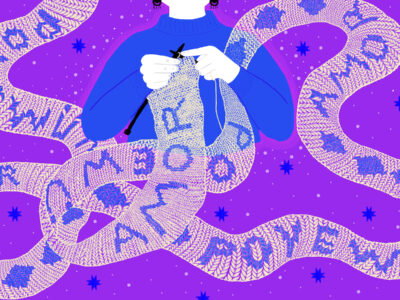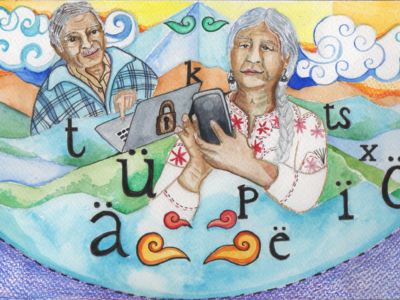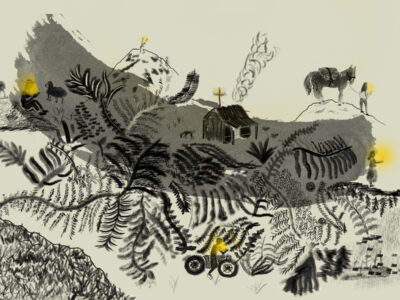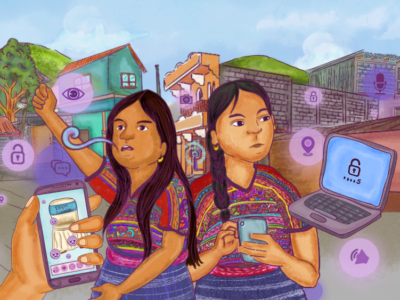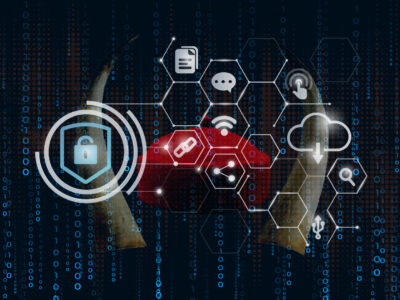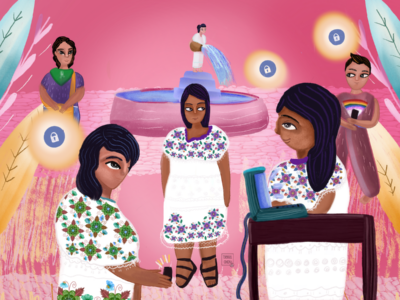Latest posts by María Alvarez Malvido from January, 2023
Learning from Mapuche teachings of “poyewvn” to counter discrimination online
Elisa Loncon, Mapuche women, activist and scholar, positioned Mapudungun in institutional spaces during her time as president of the Constitutional Convention in Chile. Her strategy inspires ideas to safeguard linguistic diversity online
Ayuujk-amïxän: Imagining digital security strategies from listening to the elders
Tajëëw goes beyond the digital security view commonly held by the youth, by involving the experience of the elders to ensure security for Mixe communication and linguistic revitalization in the digital world
Facebook and privacy in El Carrizal, a Men Diiste community in Oaxaca
What is lost when the diversity of languages in the world do not find a safe space on digital platforms? Can we create digital security strategies that recognize and leverage linguistic diversity online?
Chajinem pa k’amaya’l: Supporting Maya Kaqchikel women when they face online harassment
"We seek to support and share based on friendship and sisterhood, we share various forms of self-care and collective care against harassment and gender violence"
Igbo Wikimedians: Digital safety challenges for activists preserving their language through open knowledge
As a part of the project "Digital Security + Language", Tochi Precious Friday, Igbo language activist speaks with fellow Wikimedians about their digital safety practices and learns that little to no digital resources are available in their language.
Digital (in)security: The experience of Yucatec Mayan and LGBTTIQ+ activists
Reducing violence and digital insecurity requires he creation of audiovisual materials in Yucatec Maya that disseminate information on digital security measures and knowing what to do in the case of a violent incident.
How the COVID-19 pandemic drove more Tharu speakers online, leading to more online vulnerability
As a part of the project "Digital Security + Language", Sanjib Chaudhary, Eastern Tharu language activist in Nepal, analyzed the move by speakers of Eastern Tharu to online spaces during the pandemic and the relationship with digital safety.

